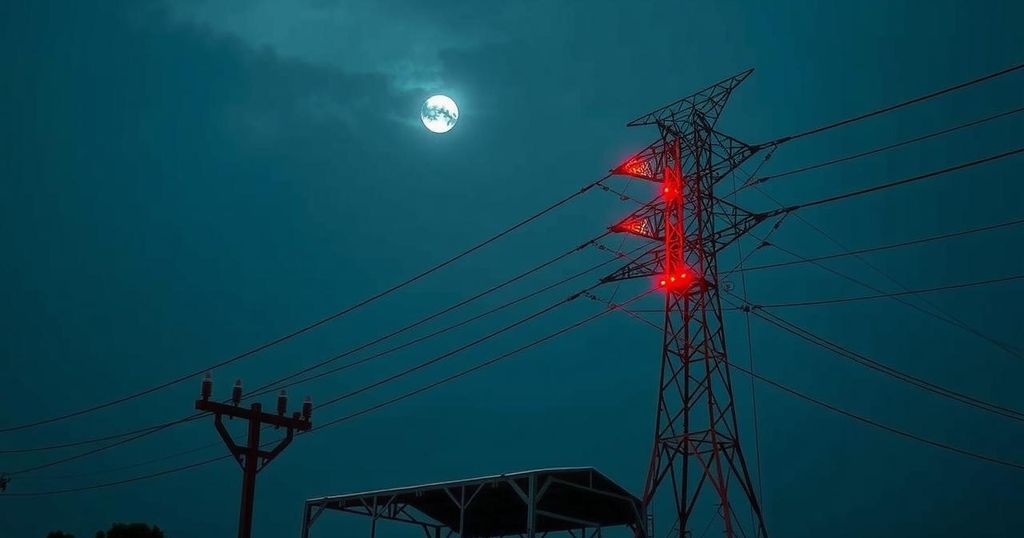Hurricane Rafael Leaves Cuba in Total Power Outage and Despair

Cuba has experienced a nationwide power outage following Hurricane Rafael, its second blackout in two weeks. The Category 3 storm caused significant crop destruction in key agricultural areas and impacted infrastructure. Residents express concern over the government’s ability to deliver essential services amid ongoing economic struggles, while recovery efforts are now underway in the aftermath of the storm.
Cuba finds itself grappling with a widespread power outage after the recent passage of Hurricane Rafael, which has inflicted severe damage on vital agricultural areas. The storm, categorized as a Category 3 hurricane, brought destructive winds that devastated crops and infrastructure across the island. The United States National Hurricane Center reported that Rafael made its way through Cuba’s western farmlands, resulting in the second nationwide blackout within two weeks, following similar destruction caused by Hurricane Oscar. In the aftermath of the hurricane, residents of Havana emerged to survey the damage, discovering dry streets but closed schools and businesses. Transport services were gradually resuming, although flight operations at major airports were halted. The Cuban government has mobilized military resources to respond to the disaster, as officials express their commitment to rebuilding efforts. However, many citizens expressed skepticism regarding the government’s capacity to manage essential services, quite evident in the despair shared by those who had suffered property losses. The agricultural sector is currently under threat, particularly in the provinces most impacted by Rafael, where farmers had to strategically protect their crops. The situation is further complicated by Cuba’s economic struggles, which have hampered recovery efforts from recent storms. The current hurricane season has experienced an alarming frequency of severe storms, raising concerns about future occurrences. Rafael stands as the 17th named storm of the season and serves as a reminder of Cuba’s vulnerability to natural disasters, made worse by aging infrastructure and strained economic resources.
Cuba’s geographical positioning makes it particularly susceptible to hurricanes, with a history of storms causing widespread devastation. The country’s reliance on aging infrastructure has compounded issues related to power generation and disaster response. In recent weeks, Cuba has faced significant challenges due to two consecutive hurricanes, impacting both urban and agricultural areas. The economic difficulties exacerbated by strained relations with the United States and ongoing crises in allied nations such as Venezuela have left many citizens uncertain about their government’s ability to respond effectively to natural disasters. Furthermore, the current hurricane season has shown elevated activity, raising concerns about increased frequency and severity of storms affecting the island.
In summary, the devastation caused by Hurricane Rafael represents a significant challenge for Cuba, already grappling with the ramifications of natural disasters and inadequate infrastructure. The island remains vulnerable due to its past experiences and current economic limitations. As recovery efforts begin, the effectiveness and capabilities of the Cuban government will be under scrutiny, especially regarding their ability to ensure essential services to their citizens post-disaster.
Original Source: www.aljazeera.com






